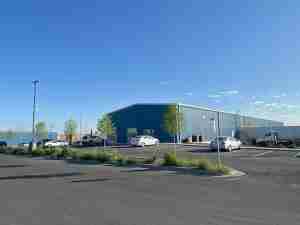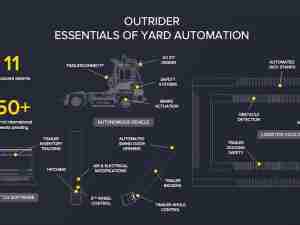According to a latest market intelligence report, the global intelligent transportation system market is projected to surpass US$ 80 Bn by 2027, expanding at a CAGR of around 13% during the forecast period.
Intelligent Transportation System Market: Overview
· According to the report, the global intelligent transportation system market is likely to be driven by the need to adopt smarter transport modes that are safer, user-friendly, and more coordinated.
· An intelligent transportation system employs communication technology and captured information in transportation in order to improve efficiency and safety, and reduce traffic issues,
· An ITS can boost the adoption of public transport by making it more effective, tackle traffic congestion issues, and shorten the travel duration, which, in turn, is likely to reduce vehicle emissions. The implementation of an intelligent transportation system enables operators to obtain real-time details, which helps them manage fleets and update operations and schedules.
Expansion of the Intelligent Transportation System Market
· As per estimates of various intelligent transportation system associations such as ITS Canada and ITS Turkey, advanced traffic management systems (ATMS) reduced the waiting time at signals by 20% to 30%, and travel time by 25%, which, in turn, reduced a significant amount of traffic congestion.
· An intelligent transportation system also reduces greenhouse gas emissions such as carbon dioxide (CO2), methane (CH4), nitrous oxide (N2O). For every hour of delay time reduced in traffic, one light weight vehicle can save 0.7 gallons of fuel, and a truck can save 1.93 gallons. Deploying electronic tolling systems and ramp metering systems can reduce traffic and maintain the flow of traffic on inter urban road networks.
· Road accidents cost around US$ 520 Bn per year, globally, which costs individual countries anywhere between 1 to 2% of their GDP. In the U.S., road fatalities cost US$ 230 Bn per year, which on an average, costs US$ 820 per person.
Thus, the need to adopt intelligent transportation systems is rising significantly.
Based on type, the global ITS market has been divided into advanced traveler information systems (ATISs), advanced transportation management systems (ATMSs), advanced transportation pricing systems (ATPSs), advanced public transportation systems (ATPSs), cooperative vehicle systems (CVOs), and automatic number plate recognition systems (ANPRs). The demand for ATMSs in established markets such as North America and Europe is rising at a steady pace, owing to the increasing deployment of adaptive traffic control systems. These systems are integrated with existing traffic control systems deployed in both, urban and interurban transportation networks, to reduce congestion and effectively use road space. It has been observed that, more than 10% of congestion on metropolitan roads is due to the utilization of bad signal controls. Travelers in metropolitan areas spend around extra 300 million hours in travel every year due to congestion. These factors have led to an increase in the integration of DSRC devices in both, vehicles and traffic control systems.
Advanced transportation pricing system is another preferred system of the intelligent transport system market. Different applications of advanced transportation pricing systems (ATPS) include electronic toll, variable parking fees, congestion pricing and vehicle miles traveled, and usage fees collection. An electronic toll collection (ETC) system uses DSRC devices for vehicle to roadside communication through infrared or microwave technology. Automatic Number Plate Recognition (ANPR) systems read the number plates of passing vehicles, extract the characters on the plate and convert them into a digital format. The law enforcement applications of ANPR systems in traffic management, toll collection, parking time management, and speeding control are key contributors to the expansion of the ANPRs segment of the market.
The freight management segment of the intelligent transportation system market is estimated to expand in the near future, as freight service providers seek solutions to improve their operating efficiency. A large number of hardware manufacturers and suppliers exist who provide freight management solutions in the local and global market.
The road safety and surveillance segment of the intelligent transportation system market is projected to expand at a rapid pace, particularly in developed countries, due to the increasing deployment of vehicle and infrastructure (V2I) and vehicle to vehicle (V2V) systems in order to improve road safety.
Based on application, the ITS market has been divided into traffic management, road safety & surveillance, freight management, road user charging, parking management, automotive telematics, parking management, and automated vehicles. The deployment of ATMSs in urban and inter-urban road networks improves the efficiency of utilizing the existing road networks. This minimizes the financial burden on transportation authorities and governments by reducing the necessary investments required for road network expansions for congestion control. This benefit fuels the demand for traffic management solutions across the world. Aggressive demand for traffic management solutions is expected in developing countries such as India, China, and Brazil, due to the rapidly increasing congestion in major cities in these countries.
Regional Analysis of the Intelligent Transportation System Market
· In terms of region, the global intelligent transportation system market has been segregated into North America, Europe, Asia Pacific, the Middle East & Africa, and Latin America. North America leads the global intelligent transportation system market. Strong government support, research activities, and public-private partnerships aimed at improving the transportation network are key factors driving the intelligent transportation system market. The Government of China is investing US$ 551 Mn to boost the intelligent transport system in the country. Rise in the number of on-road vehicles has fueled the adoption of smart mobility solutions. Cities such as Shanghai presently have around 220,000 vehicles that utilize ETC.
Prominent players operating in the global intelligent transportation system market include Siemens AG, Hitachi Ltd, WS Atkins PLC, Nuance Communications Incorporation, EFKON AG, Garmin International Inc., Iteris, Inc., Telenav, Inc., Thales Group, and TomTom NV.








